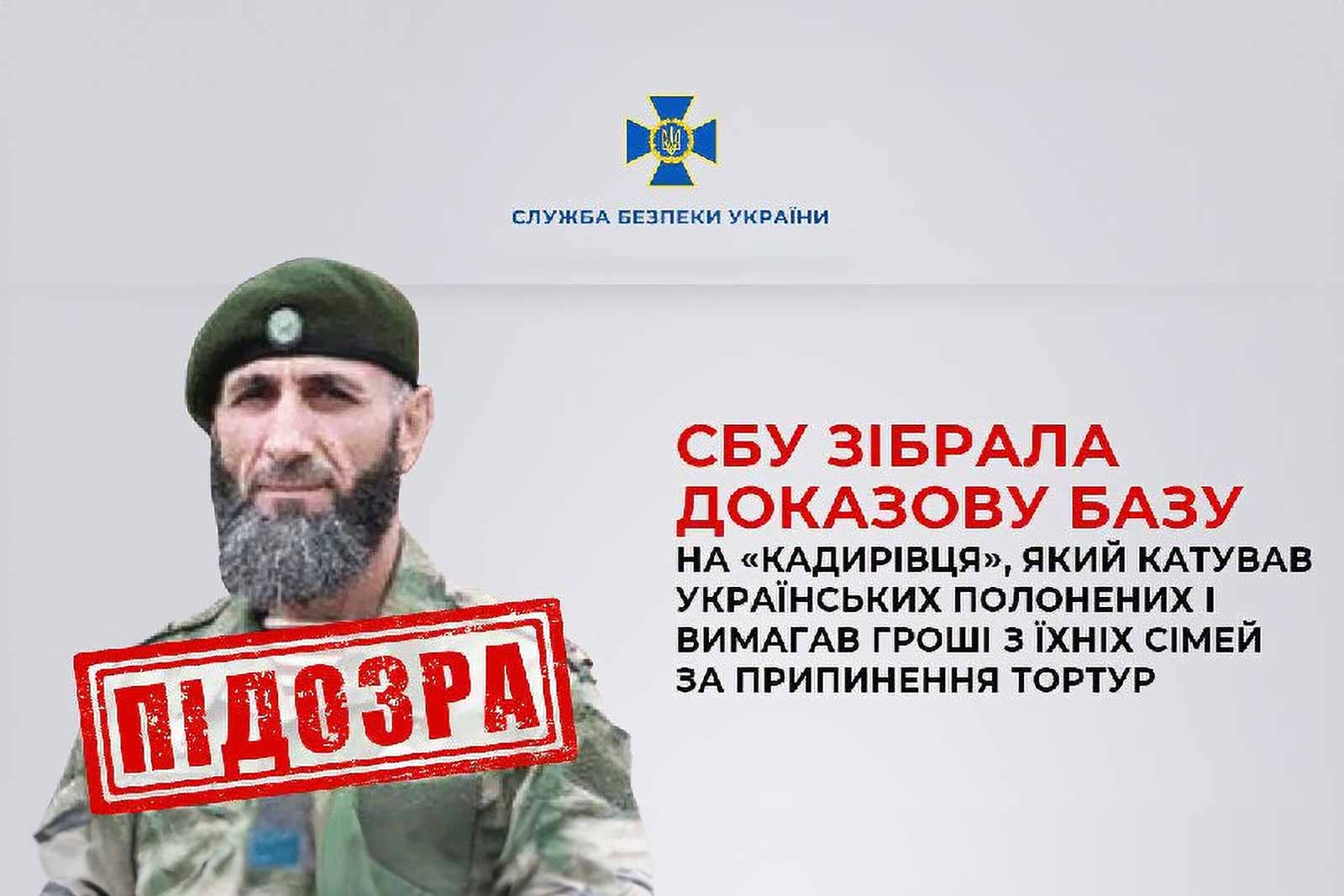Russian Commander to be Tried for Torture and Extortion
A colonel kept Ukrainian captives in a narrow pit, ordered their abuse and extorted money from relatives.
A Russian colonel accused of cruel treatment of prisoners of war and civilians and of extorting money from the captives’ relatives is to be tried in absentia in Zaporizhzhia under Part 2 of Article 28 and Part 1 of Article 438 of the criminal code.
Prosecutors sent an indictment to the court against Zelimkhan Agmerzoev for violating the laws and customs of war by a group of persons in a prior conspiracy. The 45-year-old serviceman is in charge of the 3rd company of the police regiment of the non-departmental protection of Russia’s National Guard in Chechnya. Originally from Russia’s south-western region of Rostov, he is a resident of Jhalka, a village in the Chechen Republic’s Gudermes district.
According to Ukrainian investigators, Agmerzoev, together with his subordinates, tortured prisoners of war and civilians in the Melitopol district of Zaporizhzhia region. Russian forces occupied the south-eastern territory in the early days of the invasion, with troops arriving from the occupied Crimean peninsula through the Kherson region.

Russian troops entered Melitopol, home to over 150,000 people, on February 26, 2022. About 70 per cent of Zaporizhzhia region has been under occupation since then.
The suspicion in absentia issued in July 2023 stated that Agmerzoyev and his subordinates kept prisoners of war and civilian hostages in a mechanic’s pit intended for cars, in the garage of an occupied house in Radisne, a village in Melitopol district. The pit was five metres long and less than a metre wide. They were kept with little to no food and water.
On October 17, 2022, Russians captured a Ukrainian soldier during the fighting on the southern front. He was taken and kept in the pit, where Agmerzoev and his subordinates regularly beat him and threatened to mutilate him.
In the evening of that day, Agmerzoev gave the Ukrainian prisoner of war his mobile phone ordering him to call his relatives and tell them to bring 500,000 hryvnias ( 13,000 US dollars) if he wanted better treatment.
Agmerzoyev shared his bank card number on the messaging service Viber and also sent voice messages demanding the money, threatening to mutilate the prisoner. On the night of the next day, October 18, the Ukrainian soldier’s transferred 5,250 hryvnias (144 dollars) to the card, and on October 19, 199,000 hryvnias (5,430 dollars).
The investigation found that on October 18, Agmerzoyev and his subordinates also took a civilian resident of the Melitopol district hostage. He was thrown into the pit and kept there for six days.
The Russians tortured him with electric shocks by connecting wires to his finger tips, in an attempt to obtain information about the location of weapons and pro-Ukrainian activists in the area. Agmerzoyev seized the man’s bank card and, as in the case of the captured soldier, gave him his mobile phone, ordered him to call his relatives and ask them to collect and transfer 5,000 US dollars to the selected bank card . The commander also sent voice messages: the relatives transferred the money, 177,000 hryvnias, after collecting it from among family members and acquaintances.
The same procedure was applied to another civilian man taken hostage on October 18 and kept in the pit for two days. He was tortured with an electric current to obtain information about Ukrainian activists. On October 20, after Agmerzoev found out that the civilian hostages were acquaintances, he released the second detainee on the condition that he’d collect and bring him 15,000 US dollars to free his friend. On October 24, the civilian personally handed over 4,200 dollars to Agmerzoev.
Neither the suspicion nor the case file in the court register indicate the victims' current whereabouts and their names. The investigators refer to the interrogation protocols of the victims and witnesses; they have presumably managed to leave the occupied territory. They will testify to the details of the case in court.
The pre-trial investigation stated that Agmerzoev is still in the Melitopol district and on the international and state wanted list.
On August 10, the judge of the Zhovtnevy District Court of Zaporizhzhia authorised a special pre-trial investigation in the case of the Russian commander, and on August 11, the court opted for the custody in absentia as a preventive measure.
Since the area remains under occupation, the trial is likely to be held behind closed doors for the safety of victims, witnesses and their relatives.
After receiving the indictment, the court must schedule a preliminary hearing and summon the accused to court within five days. According to Ukrainian legislation, the court will be able to grant permission for a special court proceeding in absentia and start consideration of the case on its merits only after Agmerzoev fails to appear at three preparatory hearings.
If convicted, Agmerzoev faces between eight and 12 years in prison.
